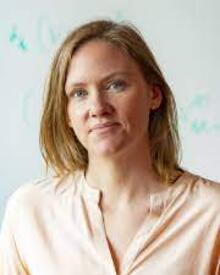14 accepted QuSoft talks at QIP 2023 in Ghent 4-10 February.

The international conference on Quantum Information Processing (QIP) is the premier annual meeting for quantum information research. Hence, we are very happy and excited to see so many QuSoft researchers at QIP 2023.
Below you can find a list of all the accepted QuSoft talks. This year QIP will be held in Ghent, Belgium. More information can be found here.
Since the first QIP meeting in Aarhus (Denmark) in 1998, the conference has featured breakthroughs by leaders in the disciplines of computing, cryptography, information theory, mathematics, and physics. The scientific objective of the series is to gather the theoretical quantum information community to present and discuss the latest groundbreaking work in the field.
14 Accepted QuSoft talks QIP 2023
SHORT PLENARY TALKS
- Stacey Jeffery and Sebastian Zur. Multidimensional Quantum Walks, with Application to k-Distinctness
- Arturo Acuaviva, Visu Makam, Harold Nieuwboer, David Pérez-García, Friedrich Sittner, Michael Walter and Freek Witteveen. The minimal canonical form of a tensor network
REGULAR TALKS
- Stacey Jeffery. Quantum Subroutine Composition
- Ludovico Lami and Mark Wilde. Exact solution for the quantum and private capacities of bosonic dephasing channels
- Chris Cade, Marten Folkertsma, Sevag Gharibian, Ryu Hayakawa, Francois Le Gall, Tomoyuki Morimae and Jordi Weggemans. Improved Hardness Results for the Guided Local Hamiltonian Problem
- Arjan Cornelissen and Yassine Hamoudi. A Sublinear-Time Quantum Algorithm for Approximating Partition Functions
- Nikhil Bansal, Makrand Sinha and Ronald de Wolf. Influence in Completely Bounded Block-multilinear Forms and Classical Simulation of Quantum Algorithms
- Sergey Bravyi, Yash Sharma, Mario Szegedy and Ronald de Wolf. Generating k EPR-pairs from an n-party resource state
- Joran van Apeldoorn, Arjan Cornelissen, Andras Gilyen and Giacomo Nannicini. Quantum tomography using state-preparation unitaries
- Dmitry Grinko and Maris Ozols. Linear programming with unitary-equivariant constraints
- Mario Berta, Fernando Brandao, Gilad Gour, Ludovico Lami, Martin Plenio, Bartosz Regula and Marco Tomamichel. On generalised quantum Stein’s lemmata and the reversibility of quantum resources
- Ludovico Lami and Martin Plenio. Testing quantumness without entanglement
- Yaroslav Herasymenko, Maarten Stroeks, Jonas Helsen and Barbara Terhal. Optimizing sparse fermionic Hamiltonians
- Jop Briët, Harry Buhrman, Davi Castro-Silva and Niels Neumann. Noisy decoding by shallow circuits with parities: classical and quantum
